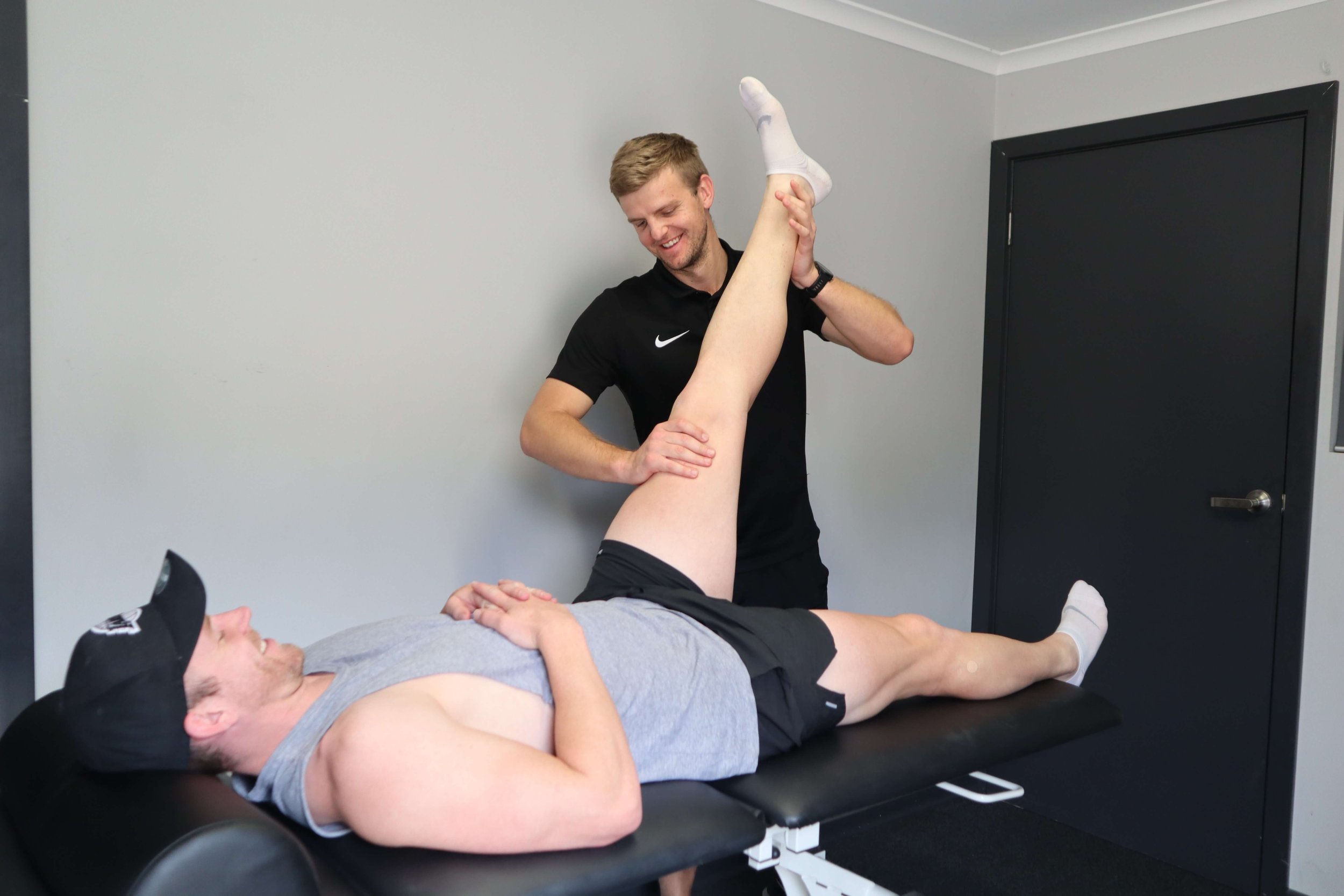Sports physiotherapy is a proactive approach to optimising athletic performance and preventing injuries. By leveraging tailored treatments and innovative techniques like real-time ultrasound and clinical Pilates, athletes can refine movement patterns and reduce the risk of overuse injuries. Physiotherapists collaborate closely with trainers and coaches, implementing strategies such as load monitoring and lifestyle management to support each athlete’s journey. With a focus on gradual progression and personalised care, sports physiotherapy aims to safely return athletes to their peak performance levels. Whether you’re an elite competitor or a recreational enthusiast, investing in sports physiotherapy can enhance your performance and minimise the risk of future injuries.

Optimises Athletic Performance
While musculoskeletal physiotherapy is also committed to aiding injured patients, Sports Physiotherapy in Goodwood takes a forward-thinking approach to preventing injuries and enhancing athletic performance. Tailored treatments and cutting-edge techniques such as real-time ultrasound for muscle activation and clinical Pilates classes are used to hone an athlete’s movement patterns and enhance training regimens. This minimises the chance of overuse injuries such as knee pain, which can be a result of improper landing mechanics or poor sidestepping technique.
Getting back to your peak level of performance is paramount, and sports physiotherapists work closely with trainers and coaches to implement injury prevention strategies for each individual athlete. These may involve load monitoring, lifestyle management, diet/nutrition advice and more technical analysis e.g. running re-training to help reduce the risk of injury.
The goal is to safely return the athlete to their sport by slowly reintroducing them to physical loads and gradually progressing to full participation. It’s important that this process is overseen by a qualified, experienced, and dedicated sports physiotherapist to ensure the patient stays on track to achieve their goals. Specialists understand the complexities involved in each case and work with the athlete to manage their expectations. This includes understanding their short and long term goals, the demands of their sport, and implementing strategies to prevent re-injury.
Prevents Injuries
Physios have a unique understanding of the body, the movement patterns that create it and how this all relates to injury. They can identify imbalances and inefficiencies that lead to injuries and work to correct these as part of the treatment process. This helps to prevent future injuries.
Using a graduated approach, a sports physiotherapist will guide you through your return to play process. This is done through criteria driven outcomes and is designed to get you back to playing your sport safely and at the highest level that you can manage. This will reduce the risk of future injuries and ensure that you can play long term without re-injuring yourself!
Athletes of all levels can benefit from sports physiotherapy. Whether you’re an Olympic athlete or just enjoy a game of tennis on the weekend, having access to sports physiotherapy will improve your performance and reduce your injury risk.
Speeds Up Recovery
Sports physiotherapists are trained to tend to the specific needs of athletes. They provide expert diagnosis and treatment based on the athlete’s current level of function, injury history and goals. In doing so, they are able to create a customised management plan for each individual patient that ensures they safely return to their sport.
Athletes place tremendous amounts of physical stress on their bodies, which can be difficult for the musculoskeletal system to manage. Therefore, they are at a much higher risk of injuries than the general population.
Seeing a sports physiotherapist early on can significantly speed up the recovery process from sporting injuries. They are able to assess the severity of the injury, identify and treat it quickly using a number of hands on treatment techniques including soft tissue massage, joint mobilisation/manipulation and acupuncture. They will also create a structured exercise program to facilitate recovery and help you return to your sport at the highest possible level with reduced injury risk.
Whether you are a professional athlete or a keen amateur, everyone can benefit from Adelaide physiotherapy. It’s an important part of any athlete’s training regime and can significantly improve range of motion, balance, strength and performance. So, don’t wait any longer and book your appointment with the team of qualified Adelaide physios at The Physio Studio today!
Improves Performance
Whether you’re an elite athlete or a weekend warrior, sports physiotherapy can help you perform better and stay injury free. Tailored treatments & cutting-edge techniques address your individual needs and enhance your training regimens. The Physio Studio’s therapists use techniques such as manual therapy, dry needling, taping and massage to reduce pain and tension in your muscles and joints. This enables you to get back into your sport faster and reduces the risk of future injuries.
Injuries can be emotionally debilitating and they often prevent athletes from playing their chosen sport for weeks or even months. Dealing with the pain, swelling and loss of mobility can take a mental toll on anyone, especially when they’re used to participating in the sports that they love. This is why a good relationship with your physiotherapist is so important. They will be able to educate you about your injury and its progression, and will work closely with you and your coach/trainer to make sure that you return to training in the best possible condition.
Physiotherapists improve an athlete’s flexibility and range of motion, which increases their athleticism. They also educate athletes on how to improve their technique and reduce their risk of injury, ensuring that they’re able to perform at their peak when they’re on the field or court. In addition, a physiotherapist can assist with nutrition and exercise planning to ensure that athletes are eating well and exercising effectively.

